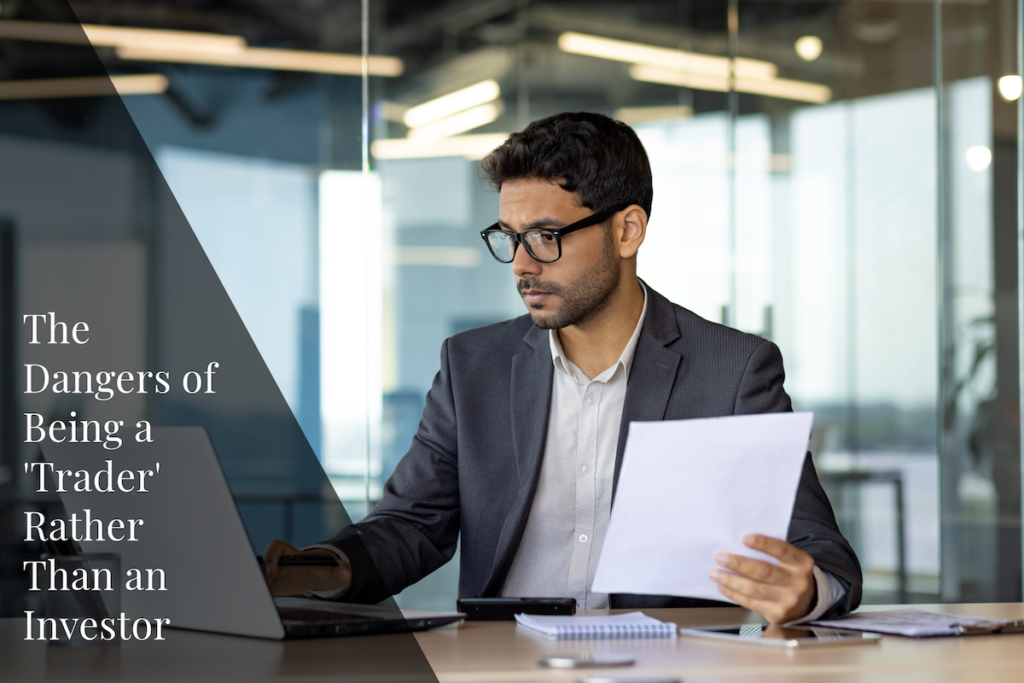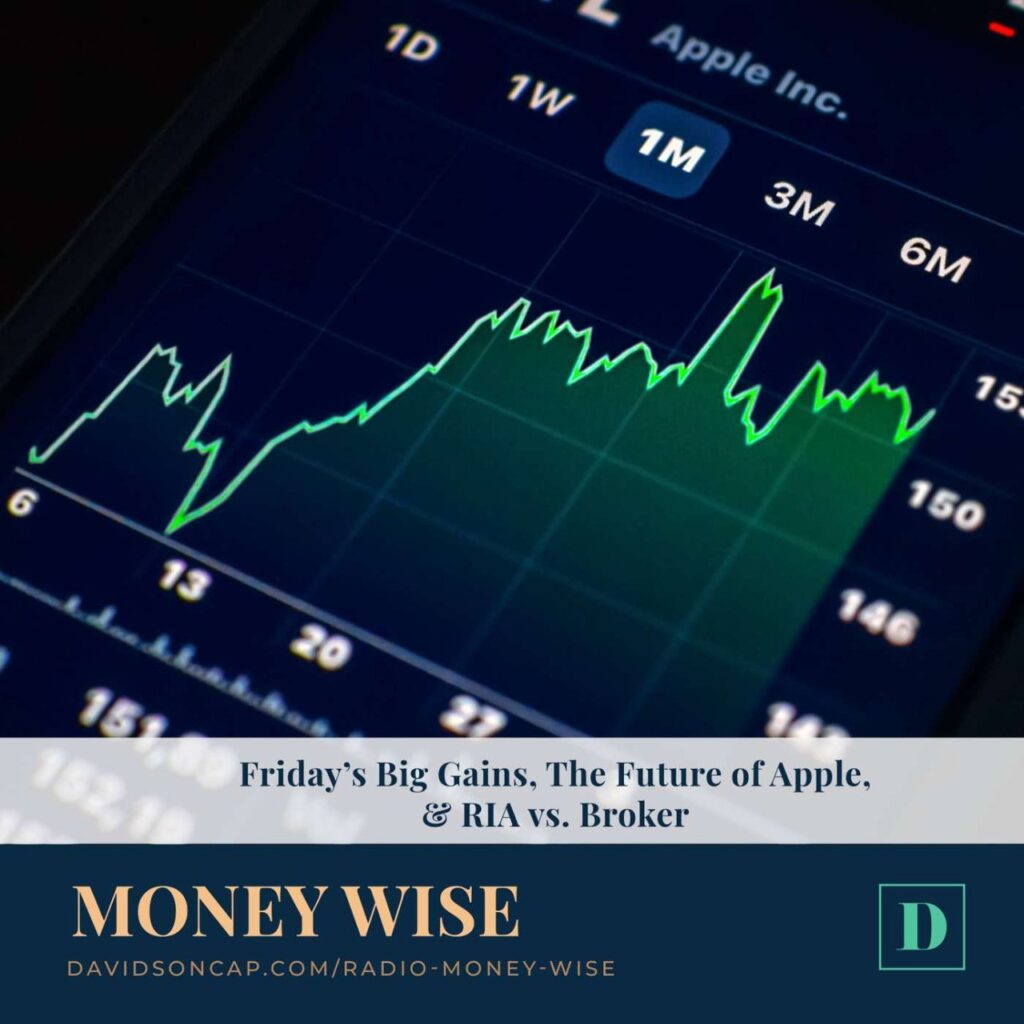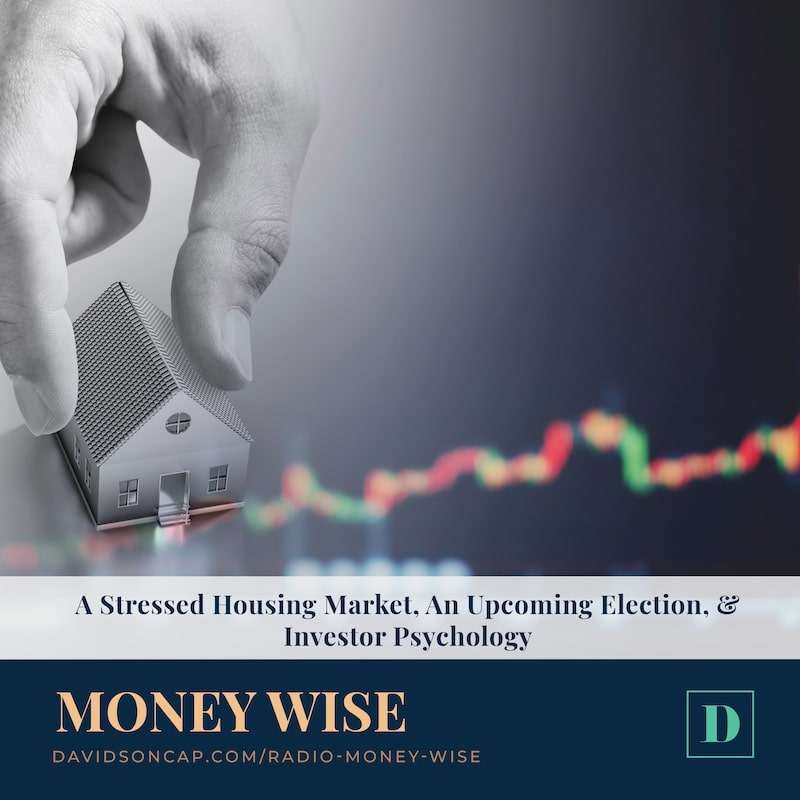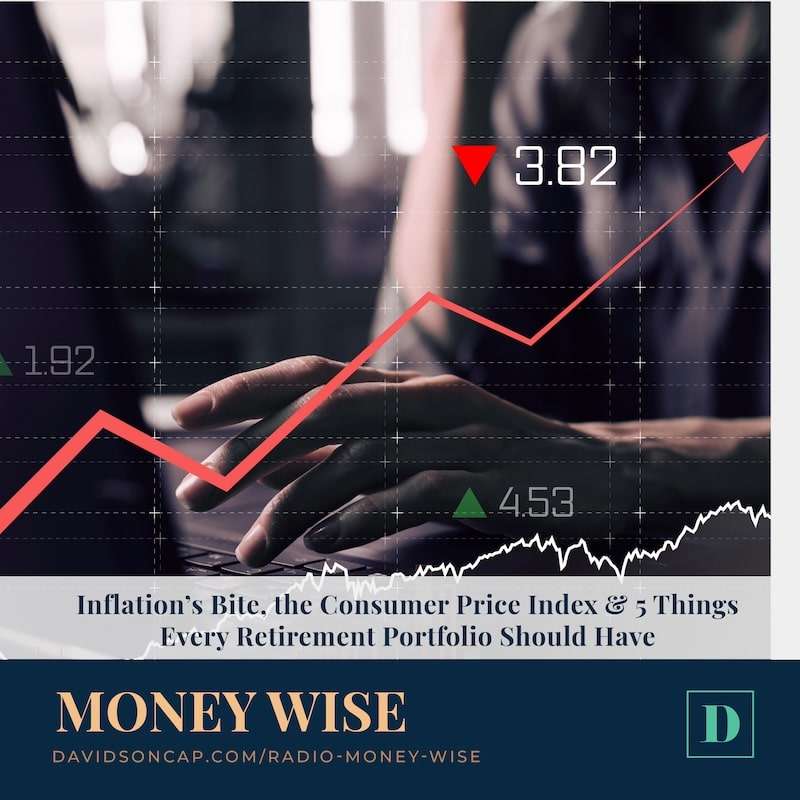Why We Want You To Play the Long Game with Your Portfolio
In the fast-paced world of finance, there’s a clear distinction between traders and investors – and you may have heard us talk about this a time or two if you’re a regular listener to our radio show and podcast. While both aim to grow their wealth in the stock market, their approaches are fundamentally different. At Davidson Capital Management, we always encourage our clients to think like investors versus traders, and understanding the contrast between trading and investing can be crucial to making informed financial decisions and safeguarding your financial future. Read on to learn more.
What Is Trading?
Trading involves buying and selling financial assets, such as stocks, bonds, currencies, or commodities, with the goal of profiting from short-term price fluctuations. Traders typically hold positions for minutes, hours, or days and rely on technical analysis, charts, and market trends to make decisions. Trading can be exciting and potentially lucrative, but it comes with significant risks.
The Allure of Trading
Despite the risk, many people are drawn to trading due to its perceived excitement and the potential for quick gains. The idea of being actively involved in financial markets, making split-second decisions, and watching your portfolio grow rapidly can be enticing. However, it’s essential to recognize the dangers that come with this approach.
SEE ALSO: The Human Touch: How an Active Investment Manager Can Boost Your Portfolio
The Dangers of Trading
Now, there is always some measure of risk in investing; it’s simply inherent in all markets. However, there are a few specific dangers associated with trading that you don’t find with a long-term investor approach to the markets:
High Risk and Stress: Trading often involves the use of leverage, which amplifies both gains and losses. The constant monitoring of markets can lead to stress and emotional decision-making, which can result in substantial losses.
Lack of Diversification: Traders often focus on a limited number of assets, which can expose them to substantial concentration risk if those assets underperform. Diversification, a key principle of effective investing, is often overlooked – many times to a trader’s disadvantage.
SEE ALSO: Five Things Every Portfolio Should Have
Short-Term Focus: Traders tend to prioritize short-term gains over long-term stability. This approach may not align with your financial goals, such as retirement planning or wealth preservation. This inability to prepare appropriately for the long term is one of the biggest dangers of trading.
Emotional Rollercoaster: Market volatility and rapid price swings can trigger strong emotions, leading to impulsive decisions. Emotional trading is a common pitfall that can result in substantial losses. A trader may experience high highs occasionally, but they also experience many low lows.
The Benefits of Investing
Now, let’s talk about the other side of the coin. Investing is a long-term strategy focused on building wealth over time. Investors purchase assets with the expectation that they will appreciate in value over years, decades, or even generations. Here are some of the advantages of being an investor:
Lower Risk: A well-diversified investment portfolio typically carries less risk than a concentrated trading strategy. This can help preserve capital, generate income, and provide stability.
Long-Term Growth: Investors benefit from the power of compounding, allowing their wealth to grow over time. Patient investors can ride out market fluctuations and capitalize on long-term trends.
Reduced Stress: Investing requires less constant monitoring and decision-making than trading, reducing stress and emotional involvement.
Tax Efficiency: Long-term investments often qualify for lower realized capital gains tax rates, providing potential tax advantages.
Finding the Right Balance
While it may be more appealing to some, it’s important to recognize the dangers of trading. It’s also critical to understand things like your own investing goals, risk tolerance, risk capacity, and time horizon so that you can better consider how investing is likely in better alignment with your needs. Consider working with a Registered Investment Advisor (RIA) who can create and actively manage a diversified investment portfolio that reflects your objectives and minimizes unnecessary risks.
Are You Looking for a Registered Investment Advisor to Assist with Your Investment Strategy?
In conclusion, being a trader can be thrilling, but it comes with substantial risks and requires a significant commitment of time and effort. Investing, with its focus on long-term growth and stability, offers a more sustainable path to building and preserving wealth. By understanding the dangers of being a trader and the benefits of investing, you can make informed decisions to secure your financial future.
Regardless of labels, building a strong portfolio and investment strategy suited to your needs is not necessarily about choosing one approach over the other. It’s about finding the right balance that suits your unique financial situation and goals.
It’s also important to find the right Registered Investment Advisor for your needs and circumstances. If you’re interested in learning more about the services we offer at Davidson Capital Management, please reach out to schedule a complimentary call.




